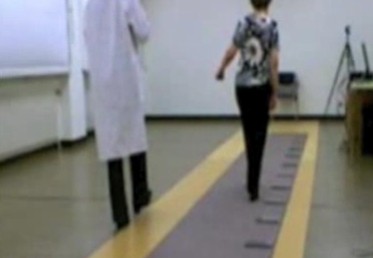Gait Changes and Dementia

Several new studies show that changes in an older person’s gait seem to be an early indicator of cognitive impairment, including Alzheimer’s disease.
“Thinking skills like memory, planning activities or processing information decline almost in parallel with the ability to walk fluidly. In other words, the more trouble people have walking, the more trouble they have thinking.
While scientists have studied gait changes after a heart attack or stroke and in diseases like Parkinson’s, they have only recently begun studying connections between walking and cognition. For decades, people thought slower walking was just part of getting old, but research shows some changes in gait signify problems that go beyond normal aging.
The studies screened out people with arthritis or other physical problems, and adjusted for height, age, weight and sex.
One study involved more than 1,100 elderly people in Basel, Switzerland. About a quarter of them were cognitively healthy, while the others had mild cognitive impairment, considered a precursor to dementia, or were in various stages of Alzheimer’s.
The participants walked normally on the electronic walkway, and again while performing a cognitive task: counting backward by two’s from 50, or naming animals.
“One 72-year-old woman’s first walking test betrayed no problems. But when she walked while counting backward from 50, her gait worsened dramatically. What we need is to use the information we have here and find a screening tool that physical therapists and doctors can use to red flag those who have a mobility problem. This should be basic. When your patient is in your office and you listen to their heart, it should be basic to see how they walk.”, said Dr. Stephanie Bridenbaugh, head of the Basel Mobility Center.”
The New York Times: Footprints to Cognitive Decline and Alzheimer’s Are Seen in Gait






 English
English
 Français
Français


